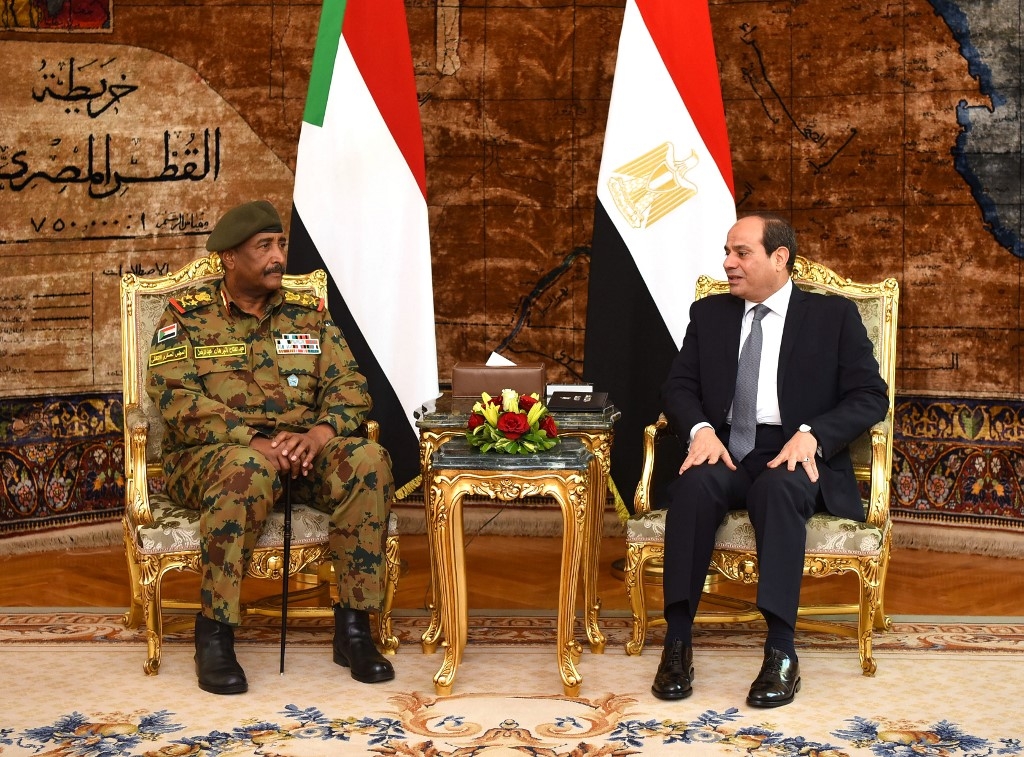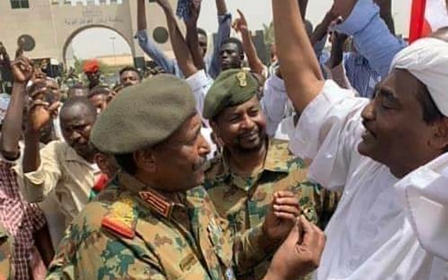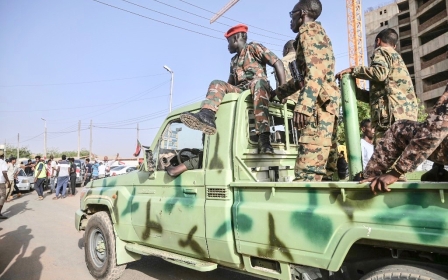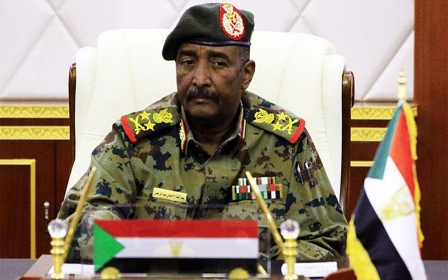Head of Sudan's ruling military council meets Abu Dhabi crown prince

The head of Sudan's ruling military council on Sunday met Abu Dhabi's crown prince, who expressed the United Arab Emirates' support for Sudan as it navigates a transition after the overthrow of autocrat Omar al-Bashir, the Emirates news agency WAM reported.
Lieutenant General Abdel Fattah al-Burhan's visit to the UAE comes on the heels of a trip to Egypt, where he met Egyptian President Abdel Fattah el-Sisi, and a visit by deputy General Mohamed Hamdan Dagalo to Saudi Arabia, Reuters said.
Burhan and Dagalo have ties to the two Gulf states through Sudan's participation in the Saudi-led coalition in Yemen. The UAE and Saudi Arabia between them pledged $3bn in financial and material support to Sudan in late April.
Analysts say the UAE, Saudi Arabia and Egypt are trying to consolidate their influence in Sudan after Bashir was toppled and arrested on 11 April, following three decades as president.
Protesters calling for a transition to democracy have warned against any intervention by the three regional allies.
Official talks between the Transitional Military Council that Burhan leads and an alliance of protest and opposition groups have stalled over whether the military or civilians will have ultimate control over transitional bodies.
During Burhan's visit to the UAE, Crown Prince Mohammed bin Zayed al-Nahyan expressed the UAE's backing for Sudan and "stressed the importance of dialogue between the Sudanese people in this sensitive phase", according to WAM.
Rift in movement
Sudan's main protest group, the Sudanese Professionals' Association, said on Sunday it had held its first meeting with the Saudi ambassador in Khartoum, calling on him to support a transition to civilian rule.
Meanwhile, a rift opened in the protest movement as a call had gone out for a general strike starting Tuesday, but the National Umma Party, a key backer of the movement, on Sunday rejected the measure.
Sudanese political analyst Faisal Mohamed Saleh told AFP the Umma party's stand was a "negative development" that "will not only threaten relations” between the Umma party and the protest movement, but will also threaten unity inside the Umma party.
Middle East Eye propose une couverture et une analyse indépendantes et incomparables du Moyen-Orient, de l’Afrique du Nord et d’autres régions du monde. Pour en savoir plus sur la reprise de ce contenu et les frais qui s’appliquent, veuillez remplir ce formulaire [en anglais]. Pour en savoir plus sur MEE, cliquez ici [en anglais].




